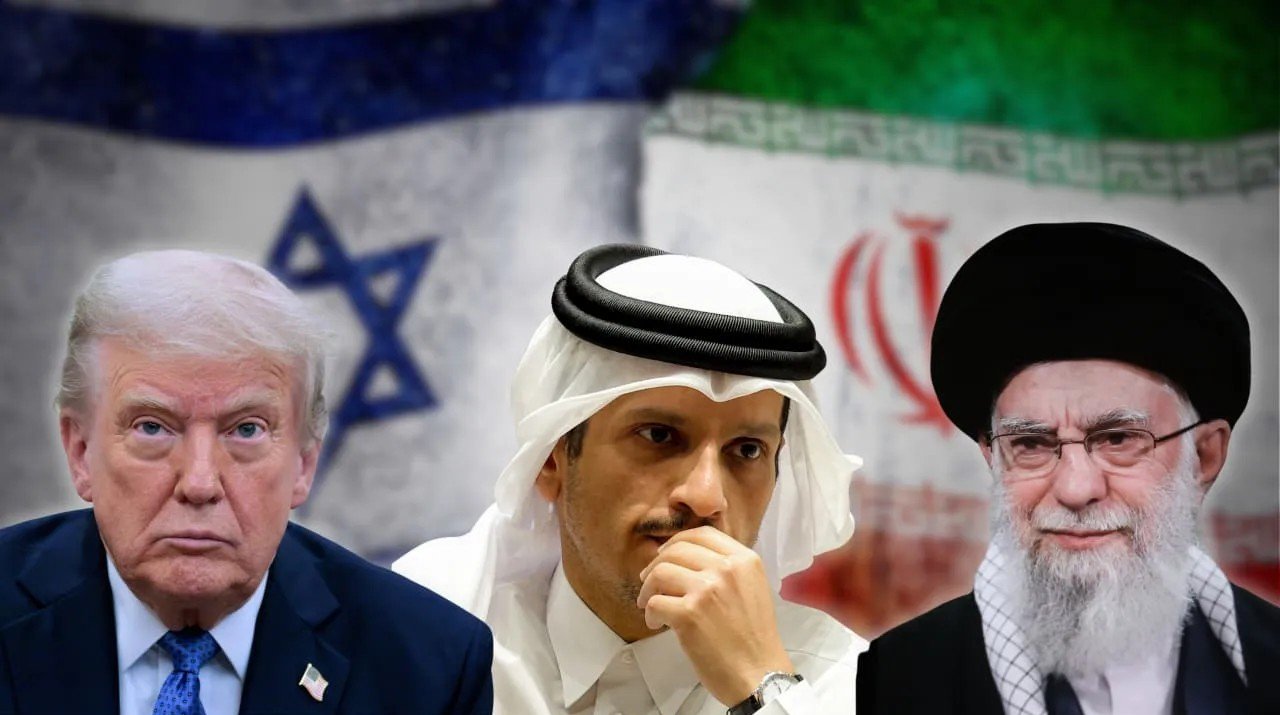WASHINGTON D.C., United States — U.S. President Donald Trump announced on Monday what he described as a “complete ceasefire” between Israel and Iran, potentially signaling an end to the 12-day conflict that has prompted fears of broader escalation in the Middle East and seen millions flee Tehran.
However, immediate confirmation from Israel was absent, and the Israeli military reported two volleys of missiles launched from Iran toward Israel in the early hours of Tuesday. Witnesses subsequently reported explosions near Tel Aviv and Beersheba in central Israel.
Israeli media indicated that a building had been struck in Beersheba, resulting in three fatalities from the missile attack. The recent hostilities saw Israel, joined by the United States over the weekend, conducting attacks on Iran’s nuclear facilities, alleging Tehran was nearing the acquisition of a nuclear weapon.
“On the assumption that everything works as it should, which it will, I would like to congratulate both Countries, Israel and Iran, on having the Stamina, Courage, and Intelligence to end, what should be called, ‘THE 12 DAY WAR’,” Trump posted on his Truth Social site.
While an Iranian official had earlier suggested Tehran’s agreement to a ceasefire, Iran’s Foreign Minister Abbas Araqchi stated there would be no cessation of hostilities unless Israel halted its attacks.
Araqchi declared early on Tuesday that if Israel ceased its “illegal aggression” against the Iranian people no later than 4 a.m. Tehran time (0030 GMT) on Tuesday, Iran had “no intention of continuing its response afterwards.” No Israeli attacks on Iran have been reported since that time. “The final decision on the cessation of our military operations will be made later,” Araqchi added in a post on X.
A senior White House official indicated that President Trump had brokered the agreement through a call with Israeli Prime Minister Benjamin Netanyahu, with Israel reportedly agreeing contingent on no further Iranian attacks. Trump’s statement appeared to suggest a phased ceasefire, allowing both sides time to complete any ongoing missions before the truce fully commenced.
Iran has consistently denied ever pursuing a nuclear weapons program. However, Supreme Leader Ali Khamenei has publicly stated that if Iran desired nuclear weapons, world leaders “wouldn’t be able to stop us.” Israel, not a signatory to the international Non-Proliferation Treaty, is widely believed to be the sole country in the Middle East possessing nuclear weapons, a status it neither confirms nor denies.
Qatar’s Prime Minister Sheikh Mohammed bin Abdulrahman Al Thani was instrumental in securing Tehran’s agreement, an official briefed on the negotiations informed Reuters on Tuesday. U.S. Vice President JD Vance, Secretary of State Marco Rubio, and U.S. special envoy Steve Witkoff were engaged in direct and indirect communications with Iranian officials, according to a White House official.
Neither Iran’s U.N. mission nor the Israeli embassy in Washington responded to separate requests for comment from Reuters. Hours earlier, three Israeli officials had signaled their country’s intent to conclude its campaign in Iran soon, a message conveyed to the United States. Israeli Prime Minister Netanyahu reportedly instructed government ministers, whose discussions concluded early Tuesday, to refrain from public comment, as per Israel’s Channel 12 television.
Financial markets reacted positively to the news. S&P 500 futures saw a 0.4% rise late Monday, indicating expected gains for the U.S. stock market on Tuesday. U.S. crude futures declined in early Asian trading on Tuesday to their lowest level in over a week following Trump’s ceasefire announcement, easing concerns over regional supply disruptions.
Despite the announced ceasefire, immediate calm did not appear to settle over the region. The Israeli military issued two evacuation warnings in less than two hours to residents of areas in the Iranian capital, Tehran, one late Monday and another early Tuesday. Israeli Army radio also reported early Tuesday that alarms were activated in the southern Golan Heights due to fears of hostile aircraft intrusion.
Earlier on Monday, Trump had indicated he would encourage Israel toward peace after downplaying an Iranian attack on an American air base that caused no injuries, while thanking Tehran for early notice of the strikes. He asserted that Iran fired 14 missiles at the U.S. air base, describing it as “a very weak response, which we expected, and have very effectively countered.”
Iran’s handling of the attack mirrored previous clashes with the United States and Israel, as Tehran seemingly sought a balance between a face-saving military response and avoiding an unaffordable cycle of escalation. Iran appears to have achieved this objective.
Iran’s attack followed U.S. bombers dropping 30,000-pound bunker-buster bombs on Iranian underground nuclear facilities over the weekend, joining Israel’s air campaign. Much of Tehran’s population of 10 million has reportedly fled after days of bombing.
Also Read: Iran-Israel war: What we know about US strikes on Iran’s nuclear facilities
The Trump administration maintains that its sole objective was to dismantle Iran’s nuclear program, not to ignite a wider war. “Iran was very close to having a nuclear weapon,” Vice President JD Vance stated in an interview on Fox News’ “Special Report with Bret Baier.” He added, “Now Iran is incapable of building a nuclear weapon with the equipment they have because we destroyed it.”
Trump has cited intelligence reports suggesting Iran was close to developing a nuclear weapon, though without elaborating. However, U.S. intelligence agencies earlier this year assessed that Iran was not actively building a nuclear weapon, and a source with access to U.S. intelligence reports told Reuters last week that this assessment remained unchanged.
Nevertheless, in a social media post on Sunday, Trump alluded to the possibility of toppling the hardline clerical rulers who have been Washington’s primary adversaries in the Middle East since Iran’s 1979 Islamic Revolution. Israel, conversely, had made it clear that its strikes on Evin prison—a notorious facility for political prisoners—and other targets in Tehran were intended to broadly impact the Iranian ruling apparatus and its capacity to maintain power.

